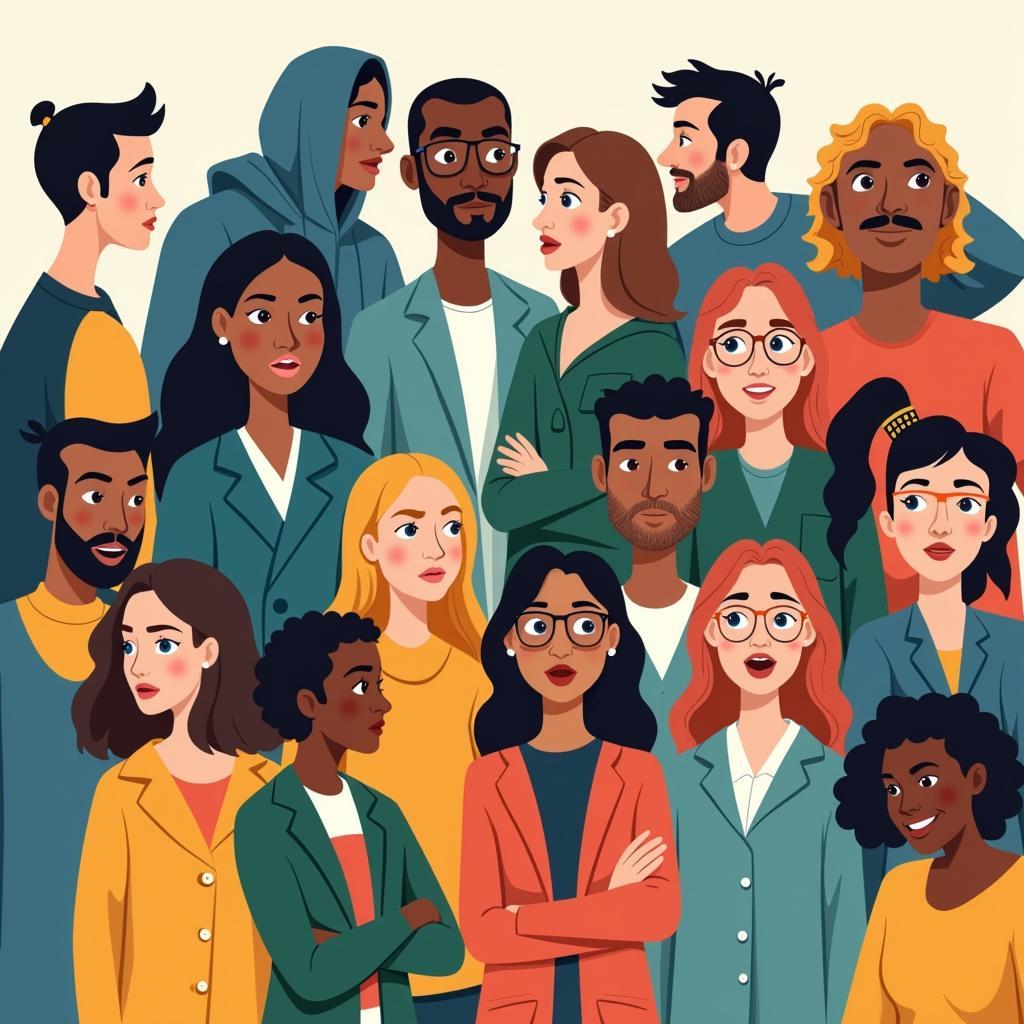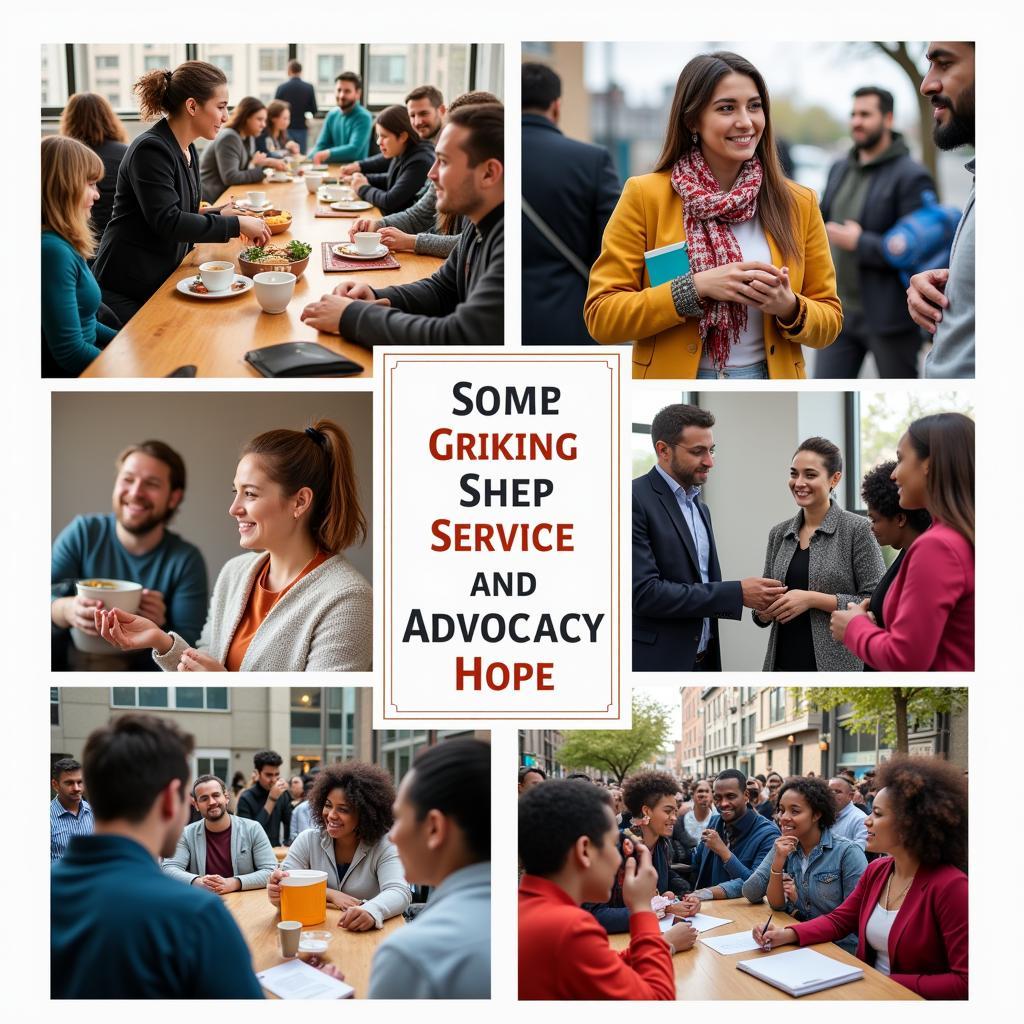The term “Dredges Of Society” often evokes images of poverty, homelessness, and despair. It’s a phrase laden with judgment and often used to dehumanize those struggling on the margins. But what does it truly mean to exist within the “dredges of society,” and how can we, as a global community, foster empathy and understanding to build bridges instead of walls?
Exploring the Meaning of “Dredges of Society”
The phrase “dredges of society” carries a heavy weight of negative connotations. It implies that certain individuals or groups are less valuable, unwanted remnants left behind by the progress of society. This perception often leads to marginalization, discrimination, and a lack of opportunities for those labeled as such. However, it’s crucial to recognize the complex factors that contribute to someone’s circumstances and challenge the simplistic notion that individuals are solely responsible for their struggles.
Factors Contributing to Marginalization
Various factors can contribute to an individual or group being considered part of the “dredges of society.” These include:
- Poverty and Economic Inequality: Lack of access to resources, education, and employment opportunities can trap individuals in a cycle of poverty.
- Systemic Discrimination: Prejudice based on race, ethnicity, gender, sexual orientation, or disability can limit access to essential services and create barriers to social mobility.
- Mental Health Issues: Untreated mental illness can significantly impact an individual’s ability to function in society and maintain stable housing or employment.
- Addiction: Substance abuse can exacerbate existing challenges and create further barriers to recovery and reintegration into society.
- Lack of Social Support: Individuals without strong family or community ties may be more vulnerable to falling into homelessness or other difficult situations.
 Factors Contributing to Marginalization – Poverty, Discrimination, Mental Health, Addiction, Lack of Social Support
Factors Contributing to Marginalization – Poverty, Discrimination, Mental Health, Addiction, Lack of Social Support
Shifting Perspectives: Humanizing the “Dredges of Society”
It’s essential to move beyond the dehumanizing label of “dredges of society” and recognize the inherent worth and dignity of every individual. This requires a shift in perspective, from one of judgment and blame to one of empathy and understanding. We must acknowledge the systemic issues that contribute to marginalization and work towards creating a more just and equitable society where everyone has the opportunity to thrive.
The Power of Empathy and Understanding
Empathy allows us to connect with the experiences of others and understand their struggles, even if we haven’t personally lived through them. By listening to the stories of those who have been marginalized, we can gain a deeper understanding of the challenges they face and the resilience they demonstrate in the face of adversity. This understanding can inspire us to take action and advocate for positive change.
“True progress lies not in ignoring the marginalized, but in recognizing their humanity and working towards a society where everyone has the opportunity to flourish,” says Dr. Sarah Miller, a renowned sociologist specializing in social inequality and poverty.
 The Power of Empathy and Understanding – Connecting with Others, Sharing Experiences, Building Bridges
The Power of Empathy and Understanding – Connecting with Others, Sharing Experiences, Building Bridges
Taking Action: Building a More Inclusive Society
While empathy and understanding are crucial first steps, they must be followed by concrete actions to create a more inclusive and equitable society. This requires addressing the root causes of marginalization and implementing policies and programs that support those struggling on the margins.
Ways to Make a Difference
There are many ways to contribute to positive change:
- Advocate for Policy Changes: Support policies that address poverty, affordable housing, healthcare access, and education.
- Volunteer Your Time: Donate your time and skills to organizations working with marginalized communities.
- Donate to Charitable Organizations: Contribute financially to organizations providing essential services to those in need.
- Educate Yourself and Others: Learn about the root causes of marginalization and share your knowledge with others.
- Challenge Discrimination: Speak out against prejudice and discrimination whenever you encounter it.
“Every individual has the potential to contribute to a better world,” notes Dr. Michael Chen, a leading expert in community development and social justice. “By working together, we can create a society where everyone has the opportunity to reach their full potential.”
 Building an Inclusive Society – Volunteering, Donating, Educating, Advocating, Challenging Discrimination
Building an Inclusive Society – Volunteering, Donating, Educating, Advocating, Challenging Discrimination
In conclusion, the term “dredges of society” is a harmful label that perpetuates stigma and dehumanization. By cultivating empathy, understanding, and taking concrete action, we can move towards a more just and inclusive society where everyone has the opportunity to thrive. Let us work together to build a world where the phrase “dredges of society” becomes a relic of the past.
FAQ
- What does “dredges of society” mean?
- How can we help those marginalized in society?
- What are the root causes of social inequality?
- What are some examples of systemic discrimination?
- How can I become an advocate for social justice?
- What are some organizations working to combat poverty and homelessness?
- How can I support individuals struggling with mental health or addiction?
Need further assistance? Please contact us: Phone: 02043854663, Email: [email protected], or visit our office at Zone 34, Bac Giang, 260000, Vietnam. We have a 24/7 customer support team.